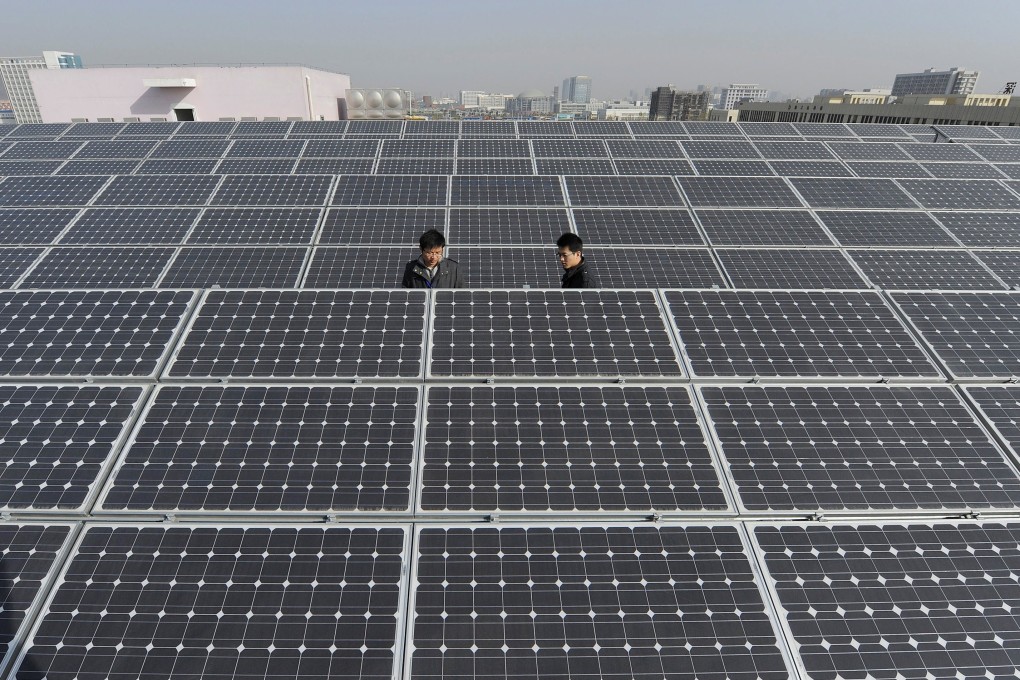Advertisement
US bans imports of solar panel material from Chinese company over Xinjiang forced labour allegations
- US Commerce Department on Wednesday ordered a ban on US imports of a key solar panel material from Chinese-based Hoshine Silicon Industry over forced labour allegations
- It also restricted exports to Hoshine, three other Chinese companies and the paramilitary Xinjiang Production and Construction Corps (XPCC), saying they were involved with the forced labour of Uygurs and other Muslim minority groups in Xinjiang
Reading Time:2 minutes
Why you can trust SCMP
25

The Biden administration on Wednesday ordered a ban on US imports of a key solar panel material from Chinese-based Hoshine Silicon Industry over forced labour allegations, said two sources briefed on the matter.
The US Commerce Department separately restricted exports to Hoshine, three other Chinese companies and the paramilitary Xinjiang Production and Construction Corps (XPCC), saying they were involved with the forced labour of Uygurs and other Muslim minority groups in Xinjiang.
The three other companies added to the US economic blacklist include Xinjiang Daqo New Energy, a unit of Daqo New Energy Corporation; Xinjiang East Hope non-ferrous Metals, a subsidiary of Shanghai-based manufacturing giant East Hope Group; and Xinjiang GCL New Energy Material, part of GCL New Energy Holdings.
Advertisement
The US Commerce Department said the companies and XPCC “have been implicated in human rights violations and abuses in the implementation of China’s campaign of repression, mass arbitrary detention, forced labour and high-technology surveillance against Uygurs, Kazakhs, and other members of Muslim minority groups in” Xinjiang.
At least some of the companies listed by the US Commerce Department are major manufacturers of monocrystalline silicon and polysilicon that are used in solar panel production.
Advertisement
Advertisement
Select Voice
Select Speed
1.00x
